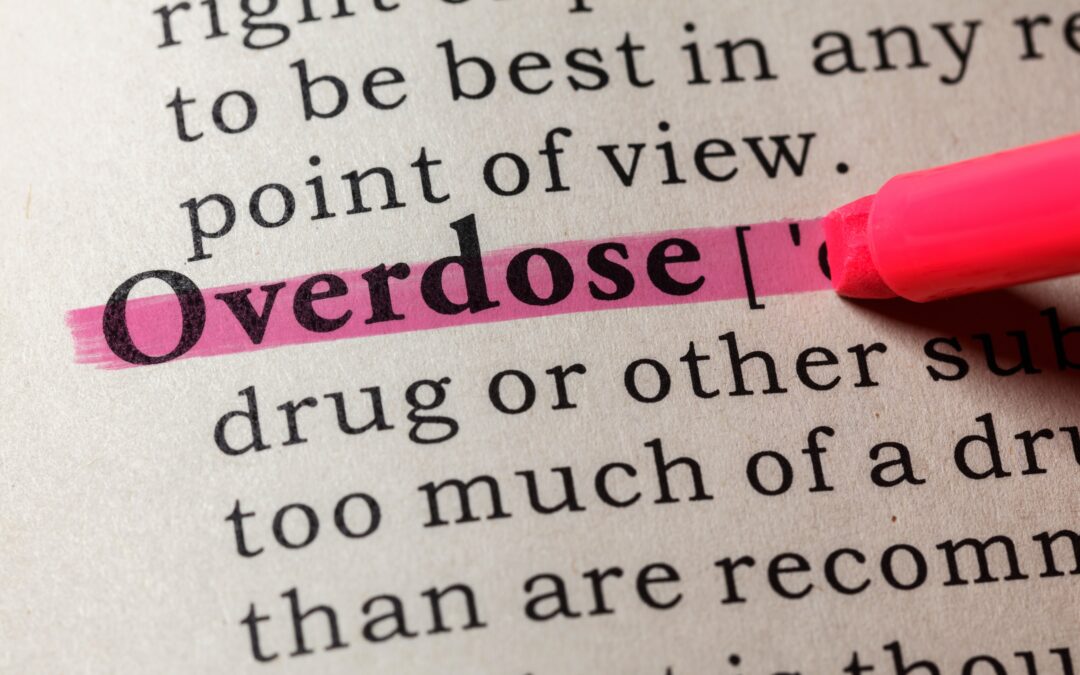Overdosing on drugs or medications is a serious and potentially life-threatening situation that can have devastating consequences. Whether accidental or intentional, overdoses can result in a range of physical, psychological, and medical complications, with the potential for long-term effects and even death. In this blog post, we’ll explore what happens if you overdose too much, shedding light on the immediate and long-term consequences of overdose and the importance of seeking help and support in times of crisis.
Understanding Overdose:
An overdose occurs when an individual ingests, inhales, or otherwise consumes a toxic amount of a substance, surpassing the body’s ability to metabolize and eliminate it safely. Overdoses can involve prescription medications, illicit drugs, alcohol, or even over-the-counter substances, with each posing unique risks and challenges.
Immediate Effects of Overdose:
The immediate effects of overdose can vary depending on the type and amount of substance involved, as well as individual factors such as age, weight, metabolism, and tolerance. Common signs and symptoms of overdose may include:
- Respiratory Depression: Many overdoses involve substances that suppress the central nervous system, such as opioids, benzodiazepines, and alcohol. Respiratory depression, or slowed breathing, is a hallmark feature of opioid overdose and can quickly lead to respiratory arrest and death if left untreated.
- Altered Mental Status: Overdoses can cause alterations in consciousness, ranging from confusion and disorientation to coma and unconsciousness. Individuals may appear drowsy, lethargic, or unresponsive, making it difficult to communicate or assess their condition.
- Cardiovascular Complications: Some overdoses can lead to cardiovascular complications such as rapid heart rate, high blood pressure, irregular heart rhythms, and cardiac arrest. These effects can have serious implications for heart health and require immediate medical attention.
- Gastrointestinal Distress: Ingesting toxic substances can irritate the gastrointestinal tract, leading to nausea, vomiting, abdominal pain, and diarrhea. These symptoms can further exacerbate dehydration and electrolyte imbalances, complicating the management of overdose.
- Seizures and Convulsions: Certain substances, particularly stimulants and psychedelics, can trigger seizures and convulsions in cases of overdose. Seizures can be life-threatening and require prompt medical intervention to prevent complications such as injury or aspiration.
Long-Term Consequences of Overdose:
In addition to the immediate effects of overdose, there can be long-term consequences that impact physical, psychological, and social well-being. These may include:
- Organ Damage: Overdoses can place significant stress on vital organs such as the heart, lungs, liver, and kidneys, leading to acute or chronic damage over time. Prolonged substance abuse and repeated overdoses can increase the risk of organ failure and irreversible complications.
- Brain Injury: Hypoxia, or lack of oxygen to the brain, is a common consequence of opioid overdose and can result in brain injury or cognitive impairment. Individuals who survive overdoses may experience long-term deficits in memory, attention, and executive function.
- Mental Health Disorders: Experiencing an overdose can be traumatic and may contribute to the development of mental health disorders such as post-traumatic stress disorder (PTSD), depression, anxiety, and substance use disorders. These co-occurring disorders can complicate recovery and require comprehensive treatment approaches.
- Social and Legal Consequences: Overdoses can have far-reaching social and legal consequences, impacting relationships, employment, housing, and legal status. Individuals who overdose may face stigma, discrimination, and barriers to accessing support and resources.
- Increased Risk of Overdose Death: Surviving an overdose does not guarantee immunity from future overdoses, and individuals who have overdosed once are at increased risk of overdosing again. Tolerance levels may change over time, increasing the likelihood of accidental overdose if individuals return to substance use.
Seeking Help and Support:
If you or someone you know is experiencing an overdose, it’s crucial to seek help and support immediately. Time is of the essence in overdose situations, and prompt medical intervention can mean the difference between life and death. Here are some steps to take in the event of an overdose:
- Call Emergency Services: If you suspect an overdose, call emergency services (such as 911 in the United States) immediately. Provide information about the individual’s condition, the substances involved, and any relevant medical history.
- Administer First Aid: While waiting for help to arrive, administer basic first aid measures such as placing the individual in the recovery position, ensuring open airways, and performing CPR if necessary. Do not attempt to induce vomiting unless instructed by medical professionals.
- Provide Support and Reassurance: Stay with the individual and provide reassurance and support until help arrives. Keep them calm and comfortable, and monitor their vital signs closely for any changes in condition.
- Cooperate with Emergency Responders: When emergency responders arrive, provide them with accurate information about the situation and follow their instructions carefully. Be prepared to provide information about the substances involved and any medical conditions or allergies.
- Follow Up with Medical Care: Following an overdose, it’s essential to follow up with appropriate medical care, including evaluation and treatment for substance use disorders, mental health issues, and any physical complications resulting from the overdose. Engage in ongoing support and treatment to address underlying factors contributing to the overdose and reduce the risk of future incidents.
Conclusion:
Overdosing on drugs or medications is a serious and potentially life-threatening event that requires immediate attention and intervention. Understanding the consequences of overdose, both immediate and long-term, can help individuals make informed decisions about substance use and seek help and support when needed. By prioritizing safety, seeking prompt medical care, and engaging in comprehensive treatment and support services, individuals can reduce the risk of overdose and move towards a path of healing and recovery. Remember, there is hope and help available for those struggling with addiction and its consequences, and no one has to face overdose alone.

